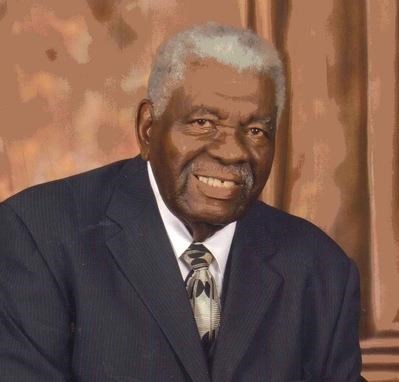
Reverend Dr. William “Bill” Hines, the son of sharecropper, Anderson Hines and maid, Ada Hines, in Bossier Parish and grew up on a plantation in Mira, Louisiana and as he’d say “40 miles north of Shreveport, Louisiana.”
Dr Hines is accredited with a number of “firsts” for which he is remembered for. The first being Shreveport’s first black police officer. Dr Hines joined the police force in 1954 after having served in the Korean Conflict and served for 21 years before retiring in 1975 with the rank of Captain. At the time he joined the department, much of Shreveport was still segregated. This was ten years before the Civil Rights Act. So Dr. Hines spent the first several years of his tenure walking his beat because he wasn’t allowed to have a patrol car.
“Bill Hines was a true trailblazer not only for the police department but for the entire city. The courage it took for him to maintain his professionalism and stay focused on doing the job that he was called to do during a time when racism was overt and obvious is something that very few of us can actually imagine, let alone relate to.” The debt of gratitude which the city of a Shreveport owes him for the sacrifices he made is one that can never be fully repaid.”
William Hines is not only part of history but he paved the way for other black and female officers to have the same, if not better opportunities.
Hines was on the force when one of Shreveport’s most notable civil rights events took place at Little Union Baptist Church.
In 1973, he filed suit against Commissioner George D’Artois and the city of Shreveport. With the lawsuit pending, Dr. Hines was targeted by D’Artois. He was followed by other officers and bribed but he pushed forward with the suit. He won the suit, forcing the department to promote more black officers and allow them to work in all parts of the city.He petitioned Governor Edwin Edwards to hire the first black state trooper, Harold Carpenter.
Unable to join the Fraternal Order of Police, Hines formed the Magnolia State Peace Officers Association in 1956, an organization which 66 years later still trains and recognize black law officers.In a statement to channel 12 in an interview Dr. Hines stated “It was a long road, but when I look back, I never lost a night of sleep because I never misused nobody. I policed from the heart, I always put myself on the other side of that line.”
In 1978, he entered the ministry and pastored the Saint Luke #1 Baptist Church for 21 years, Antioch Baptist Church-Homer, Louisiana for 8 year, organized and pastored the Emmanuel Missionary Baptist Church- Shreveport until his death May —14, 2014.
He was also inducted Into the R W Norton Art Gallery’s Hall of fame in Shreveport, Louisiana.
Thanks to Marie Hines from Facebook.
